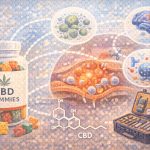What Is a PMHNP?
Psychiatric-Mental Health Nurse Practitioners, or PMHNPs, are registered nurses with advanced education and specialized clinical training in psychiatry and mental health. PMHNPs assess, diagnose, and treat mental health disorders across the lifespan, with many dedicating their careers to working with children and adolescents. Their unique blend of nursing compassion and psychiatric expertise allows them to understand the biological, psychological, and social factors impacting mental health. With the expansion of psych NP online programs, more professionals from diverse backgrounds can enter the field and answer the urgent need for skilled behavioral health care providers for youth.
PMHNPs often serve as primary mental health providers when specialty resources are limited. They can prescribe medication, provide therapy, and engage with families and schools to design holistic care plans. The growing mental health workforce is aided by institutions such as Northern Kentucky University, which trains tomorrow’s leaders in psychiatric nursing to address vulnerable populations’ needs better.
Youth Mental Health Challenges Today
The mental health needs of children and teens have reached unprecedented levels in recent years. According to the CDC’s national data, one in five children in the United States has experienced a mental, emotional, or behavioral disorder. Rates of anxiety, depression, and suicidal behaviors have soared, driven by academic pressures, social isolation, family stress, and influences from social media. The COVID-19 pandemic intensified these pressures, disrupting routines and access to school-based mental health services. Early intervention is critical, as untreated mental health issues in youth can lead to lasting academic, relational, and health consequences into adulthood.
Prevention and Early Intervention
PMHNPs play a vital role in prevention and early intervention efforts. They work in schools, pediatric clinics, and community programs, delivering screenings for early signs of mental health conditions. By collaborating with teachers and parents, PMHNPs ensure that children receive timely support and that warning signs are not overlooked. Their clinical skills enable them to offer developmentally appropriate psychotherapy and, when needed, evidence-based medication management. These efforts can break the cycle of stigma and help families build the resilience necessary for long-term well-being.
Education and Training for PMHNPs
Education for PMHNPs typically begins with a Bachelor of Science in Nursing, followed by a master’s or doctoral-level psychiatric nurse practitioner program. Hands-on clinical experiences are central to their training, with rotations in pediatric, adolescent, and family mental health. Many programs now allow online study, expanding access to advanced credentials. Ongoing training in trauma-informed care, youth development, and cultural competence is essential so PMHNPs can respond effectively to the evolving needs of diverse youth populations.
Collaboration and Integrated Care
Addressing the youth mental health crisis requires collaboration among medical, mental health, and educational professionals. PMHNPs are often at the forefront of integrated care teams, linking primary care providers, school counselors, social workers, and specialists to create a safety net for youth. According to recent health news coverage, integrated care models have improved access and reduced delays, leading to more positive outcomes for young people in urgent need.
Barriers and Solutions in Care Delivery
Despite growing awareness, barriers such as stigma, workforce shortages, and limited insurance coverage persist. Many families still face long appointment waitlists, and some communities lack trained professionals. PMHNPs work to overcome these obstacles through community outreach, telehealth services, advocacy, and policy work. Their efforts can help create more equitable and accessible mental health systems for all youth, no matter their background or geography.
The Future of Youth Mental Health Support
The future will likely see PMHNPs playing an even larger role in prevention, crisis intervention, and long-term care for young people. Digital health tools, school-based health centers, and innovative therapy approaches continue to expand opportunities for early detection and support. By supporting young people early and consistently, PMHNPs contribute to healthier communities and brighter futures for children and teens everywhere.
Key Resources for Professionals
Ongoing education, professional organization memberships, and access to the latest research are crucial for PMHNPs working with youth. Resources from national bodies, continuing education providers, and collaborative practice networks help practitioners remain effective advocates for the next generation’s mental health.
Lynn Martelli is an editor at Readability. She received her MFA in Creative Writing from Antioch University and has worked as an editor for over 10 years. Lynn has edited a wide variety of books, including fiction, non-fiction, memoirs, and more. In her free time, Lynn enjoys reading, writing, and spending time with her family and friends.















